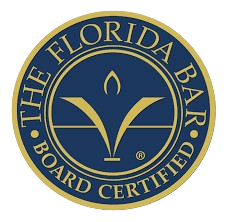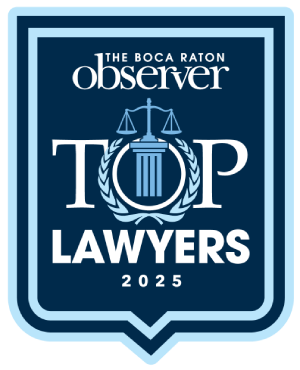When we first sit down with a potential new client involved in an auto accident, one of the first questions we must ask is what insurance coverage this injured person may have. In response, we often hear, “I have full coverage.” But this is a commonly misunderstood term, and people are often surprised when “full coverage” means far less than they had originally thought, and there is nothing we can do to help them.
Any policy that meets Florida’s minimum insurance requirements can be called “full coverage.” However, Florida’s minimum requirements are truly bare bones, so many of these policies are far from the “full coverage” that drivers actually need to protect themselves. While not insurance agents or brokers, as personal injury attorneys, we must have a level of understanding of Florida’s auto insurance laws and policies. We offer this only to help you understand some of the insurance issue that may impact your rights and duties under the law with respect to your potential auto accident case. We cannot make any recommendations as to what type or how much insurance coverage would be appropriate for you.
Florida’s Minimum Insurance Requirements
The Florida Motor Vehicle No-Fault Law that requires that drivers own the following minimum insurance coverages:
- Personal Injury Protection (PIP): Must include at least $10,000 of coverage . If you are in an accident, regardless of who is at fault, PIP pays 80% of the medical bills and 60% of the lost wages for the driver, their children, household members, and any passengers in the car who do not carry their own PIP insurance. PIP also covers up to $5,000 in death benefits.
- Property Damage Liability (PDL): Must include at least $10,000 of coverage to cover damage to someone else’s property
If you or one of your passengers are badly injured in an accident, $10,000 for medical bills and lost wages does not go very far at all. Initial hospital bills alone can routinely be considerably higher than that. You, as the injured person, are personally responsible for paying for the remainder. Similarly, if you are at-fault in an accident involving an expensive car or damaging someone’s property, without proper insurance, you can be held personally responsible for all costs over $10,000.
How to Protect Yourself
To truly have “full coverage,” you will need to purchase the following additional insurance policies:
- Bodily Insurance Liability (BIL): This protects you in the event that you are at-fault in an accident and the other party sues you. If the other party is seriously injured or dies, they (or their estate) can sue you for amounts above the $10,000 PIP coverage. They also can sue you for pain and suffering, which PIP does not cover. This is not required in Florida, but an absolute necessity for you to be fully protected.
- Uninsured / Underinsured Motorist (UM/UIM): If you are involved in an accident with someone who does not have insurance or only carries the minimum, UM/UIM is insurance that you carry to protect yourself. Your auto insurance carrier essentially stands in the shoes of the at-fault party who did not have enough insurance to pay for your damages. The UM/UIM carrier could be held liable for any damages the at fault party would have been responsible for, including but not limited to medical bills and lost wages both in the past and in the future, pain, suffering, mental anguish, loss of enjoyment of life, etc.
- Collision: This covers damage to your vehicle regardless of who is at-fault. Following a crash, many of our clients are often very concerned about how their car is going to get fixed. In circumstances where damages are extensive, there are multiple cars involved and/or there is limited coverage carried by the at fault party, collision coverage will step in and either pay to fix or total your vehicle. Without it, many are left with no recourse at all and simply lose the car.
“Full coverage” insurance truly needs to provide full coverage to protect you, not just provide the minimum required by law. The term itself is misleading and inaccurate. As with anything, you get what you pay for. It is essential that you understand the different types of auto insurance coverage and work with an agent you know, like and trust. Explain your needs and goals, ask questions and read your applications, quotes and contracts carefully. If you have additional questions about the types of auto insurance and how it may impact you, contact the offices of Rader Law Group. We are happy to further explain this and how it may impact your case or rights in the future.
Rader Law Group, LLC
With decades and decades combined experience, the attorneys at Rader Law Group understand the meaning of Justice. Our one and only mission is to get each client the justice he or she deserves; our team of attorneys never back down when we know our client is right.
We offer our clients the compassion and guidance they need as they work through trying times in their lives. The balance of working relentlessly for our clients combined with our caring approach has helped us achieve a fantastic record of success with our clients. We get our clients the justice they deserve.
At Rader Law Group, You matter. Your justice matters. Your Justice Starts Here. 954-913-2273.
References Used:
Florida Department of Highway Safety and Motor Vehicles. Florida Insurance Requirements – Florida Department of Highway Safety and Motor Vehicles (flhsmv.gov). Accessed December 10, 2021.
Florida Department of Highway Safety and Motor Vehicles. Florida Insurance Requirements – Florida Department of Highway Safety and Motor Vehicles (flhsmv.gov). Accessed December 10, 2021.











